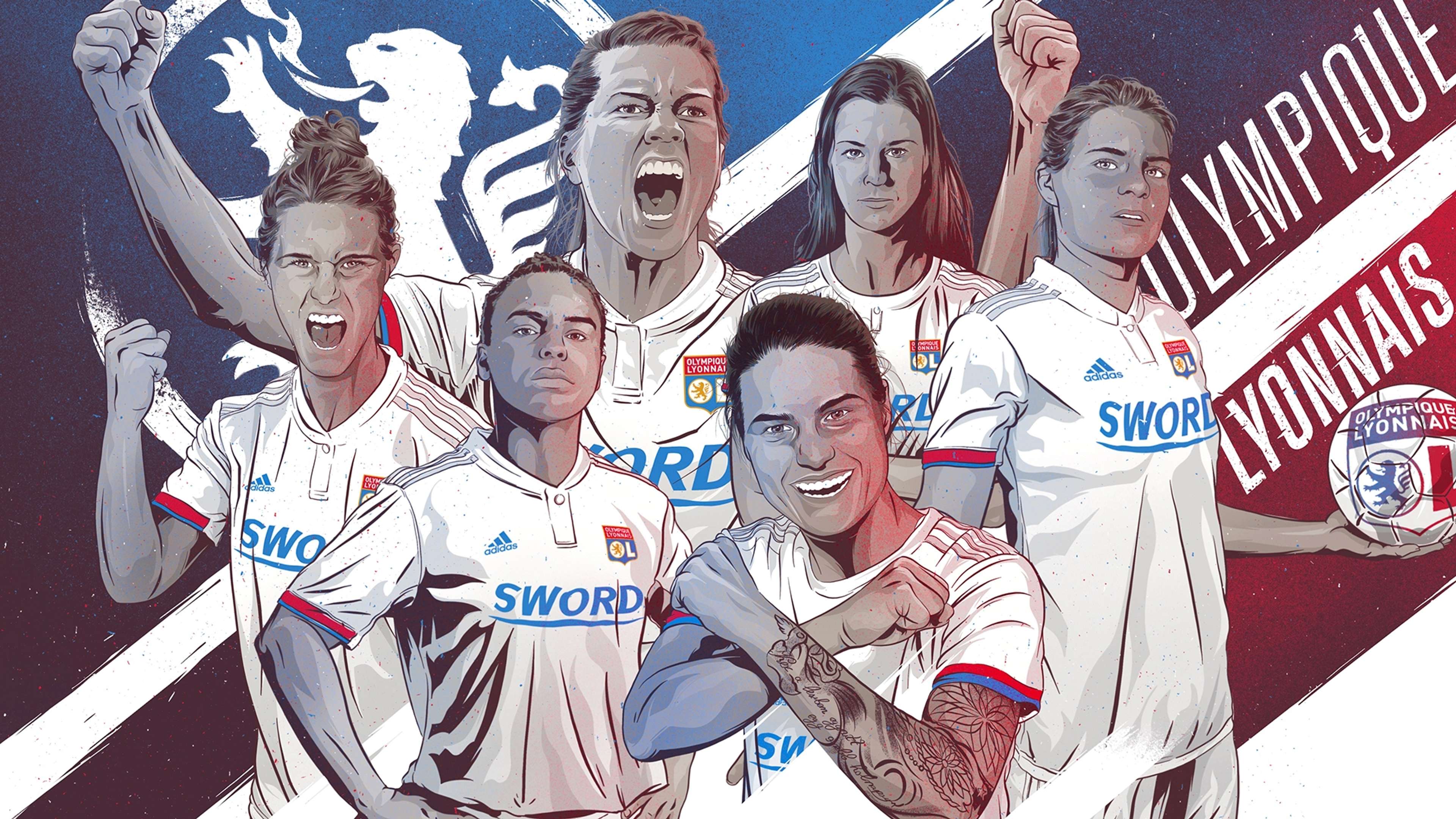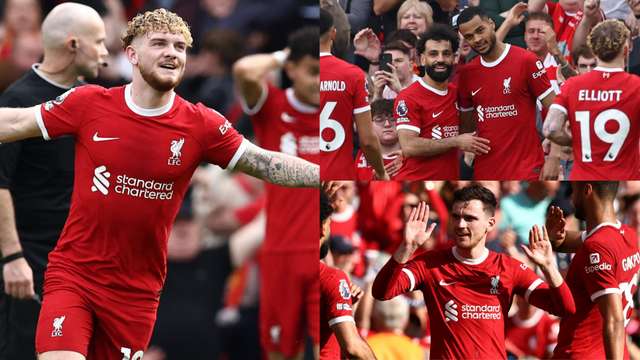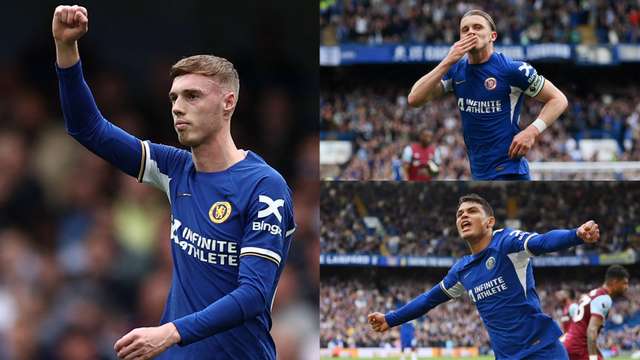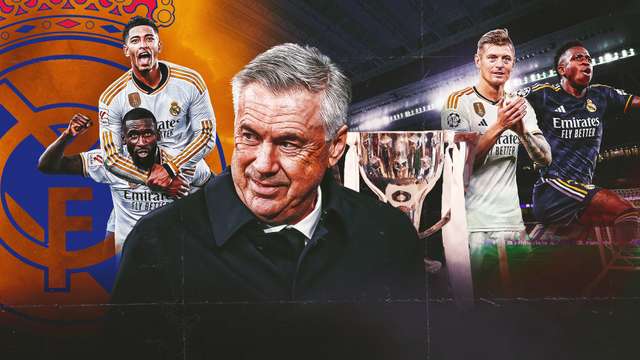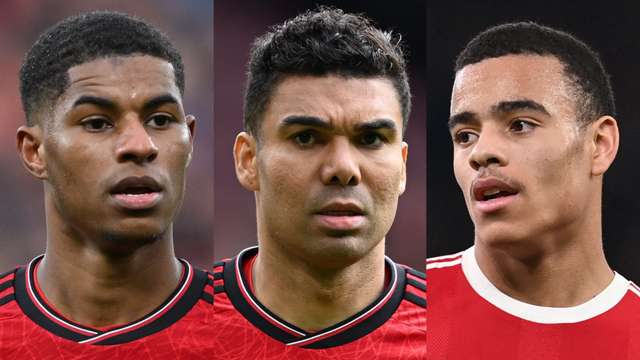Lyon’s incredible journey to becoming one of the greatest sporting teams of all-time started with a gruelling bike ride up the Col de l'Iseran, one of the mountain stages on the world-famous Tour de France.
Ten years ago, before they had collected any of their now seven Champions League titles, their players were sent to the French-Italian border for a team bonding activity that meant tackling part of the iconic cycling track.
It would be a horrible climb, one of the hardest activities the players would ever do, but every one of them completed it and could celebrate afterwards.
As the season went on, that experience would become more than just an anecdote. As Lyon pushed for their first-ever European title, they likened every part of their campaign to that awful, never-ending slope in the Graian Alps.
They knew it would be tough. They knew it would take everything they had. But they knew they wanted to stand at the top at the end and celebrate winning the Champions League – and they did.
Next Match
Every part of their success since – the seven European titles, their fifth in succession claimed earlier this year – can be traced back to those triumphs in 2010-11.
That’s not to say, though, that the dominance that has followed was anticipated.
“Where the club is now, on the top of Europe, seven Champions League titles, it’s unbelievable,” Eugenie Le Sommer, who has won all seven of those titles, tells Goal.
“If you told me that 10 years ago, I couldn’t trust you!”
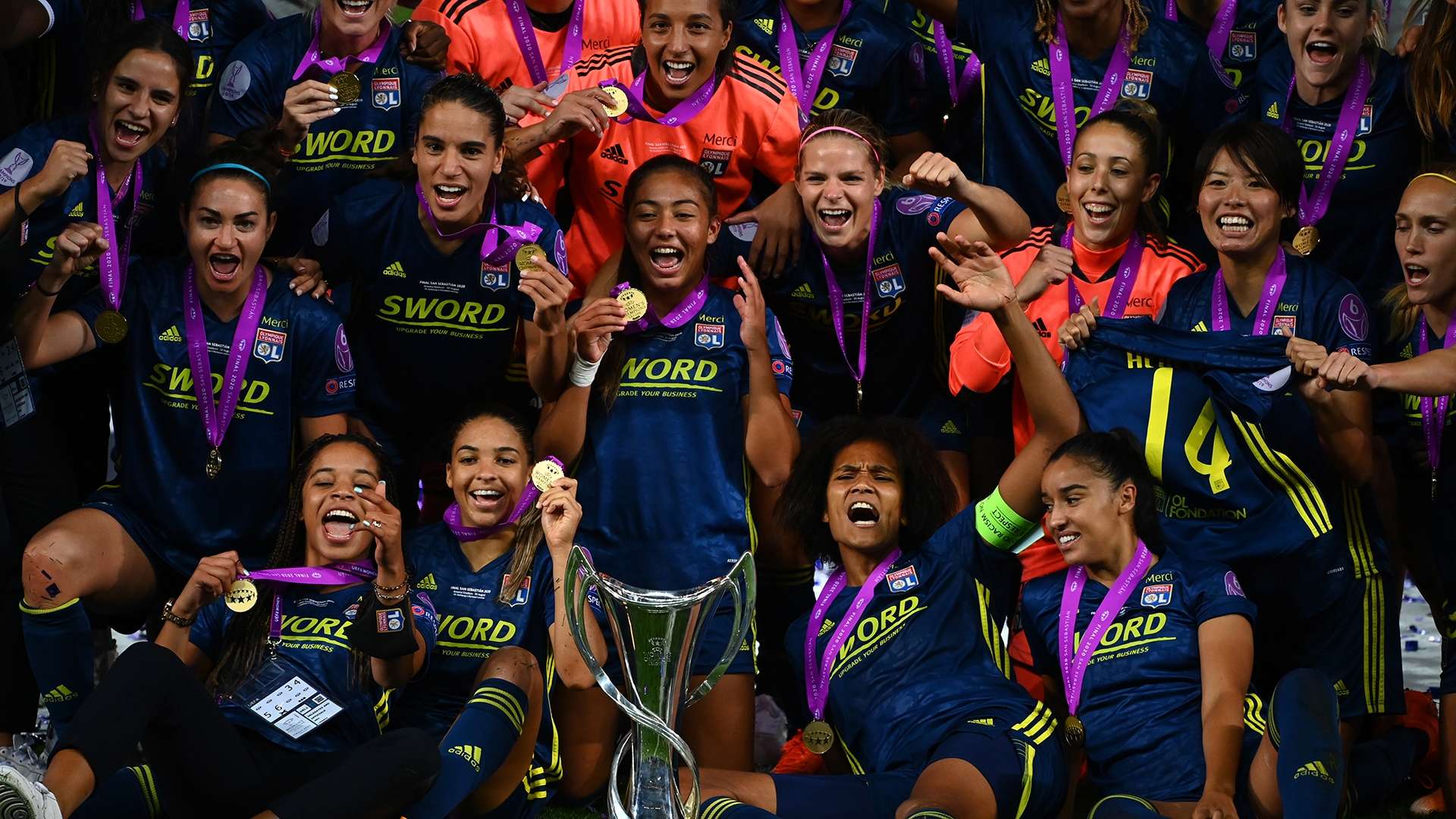 Getty
Getty
What Lyon have achieved in the last decade is completely and utterly unprecedented.
It is dominance that makes them not only one of the best teams in women’s football history, but sporting history.
It makes their humble beginnings even more incredible, too. It was only in 2004 that this club started its women’s section.
When Lotta Schelin, the former Sweden international who would be Lyon’s all-time top-scorer when she left the club in 2016, signed in 2008, the club was not the super-power it is today.
“They played Umea twice and people said: 'Oh, that was a good team'. That was all I knew,” Schelin tells Goal.
“But they talked about the Champions League so much. They really wanted to achieve that.
“I was like, 'okay, I can stay in Europe, in a good team, and they want to win the Champions League. Why not?' I wanted to go there and try it out.
“When I got there, it didn't feel like a professional environment at the time. It wasn’t left behind, but it was an ongoing process.
“For me, it wasn't the biggest issue. I felt the club really wanted something and the president [Jean-Michel Aulas] for sure, he was the one who was supporting everything.”
By 2010, the team had “everything that [they] needed” and it was then that things really took off.
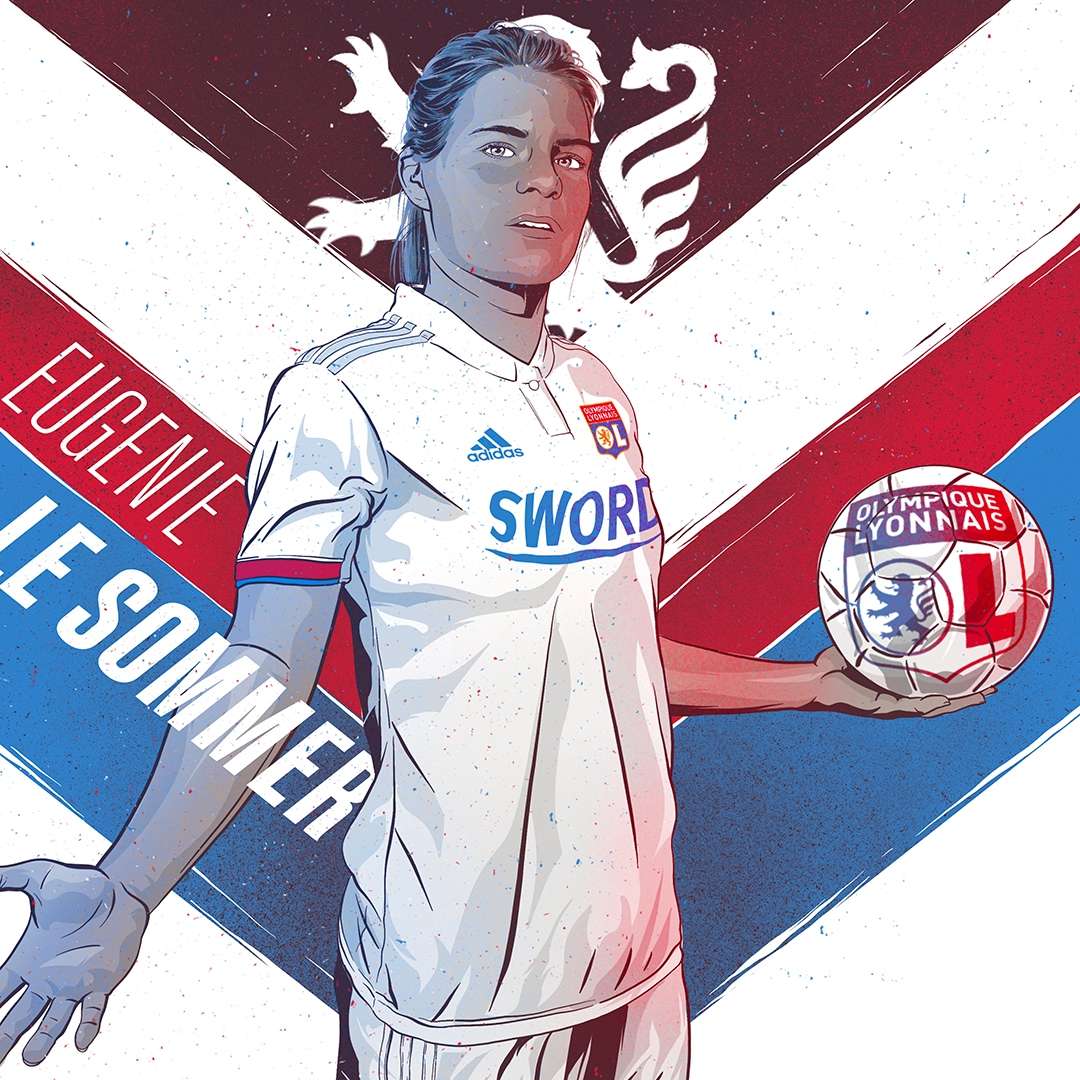 Callum Seymour/Goal
Callum Seymour/Goal
Players like Le Sommer arrived to join a team that already featured legends such as Camille Abily, Sonia Bompastor, Elodie Thomis, Amandine Henry and Wendie Renard, to name but a few. Under the guidance of Patrice Lair, Schelin says the club “levelled up”.
After losing on penalties in the 2010 Women's Champions League final, they were determined to go one further.
“I [remember] in 2011 when we played at [Stade de] Gerland and we had 20,000 Lyon fans there to cheer us on against Arsenal,” Schelin recalls, describing the semi-final as one of her favourite moments at the club.
“I got to score two goals in that game. It was a huge step, because it was the semi-final. It was amazing feeling.”
After coming through with a 3-2 win over the Gunners, Lyon beat holders Turbine Potsdam 2-0 to win their first Champions League title.
Ask any player who was part of the winning team that day, no matter what they have achieved since, and it is the first memory they recall when asked for their favourite.
“It was our trigger for the team,” Henry, the French midfielder who ranks eighth in Goal 50 this year, explains.
“It was one of the best memories of my career. I will never forget that. It was the culmination of several years of work. I always want to win this trophy and, even if after that we won it several times, it's not the same.”
It wasn’t just significant for the individuals involved that day, either, but for every Lyon player who would follow.
“The winner culture that’s in the walls, in the locker room and in Lyon as a club, that’s a culture that was born in 2010-11 and I think that is still with them today,” Schelin says.
“The girls and the staff who won that first [title], we know that was a big step of a big thing for the club and for us.”
That culture was carried into the following year, when Lyon won their first-ever treble. In Europe, they were especially dominant, scoring 39 goals and conceding just once on their way to a second successive title.
It was particularly special for Le Sommer. She has scored over 250 goals for this club now, becoming their all-time top-scorer, but she still picks out her penalty in the 2012 final as her favourite.
“I was young and I had that responsibility,” she remembers. “That was my first really important goal for the team.”
It was the France international’s spot-kick that gave Lyon the lead in Germany, against Frankfurt, in front of 50,000 people – the majority of whom were rooting against them.
“The second [title] was amazing,” Schelin recalls. “We did the treble, and on top of that we had [an aggregate score of] 39-1. That's amazing if you go through the Champions League with those kinds of numbers.”
But despite what the club have gone on to achieve since then, Lyon’s story isn’t all smooth sailing. The relentless drive and motivation that created the winning machine we see today can be traced back to the difficult years that followed their 2012 triumph.
After losing the 2013 final to Wolfsburg on penalties, Lyon were nowhere near the showpiece event in 2014 or 2015 – eliminated in the last 16 in back-to-back campaigns.
“It was really hard,” Le Sommer explains. “I remember watching the quarter-finals, the semi-finals, the final, at home.
“I said: ‘I don’t want to watch it again on my TV. I want to play these games’. It was a motivation for me, it was for the team too. This experience made us better and stronger in our mentality.”
Henry adds: “We had won several European titles. All the teams were playing 200 per cent against us and unfortunately we had less success.
“It was a little slump, but we quickly got back to work. The president invested in several important players. It was a turning point for the team with a generational change too.”
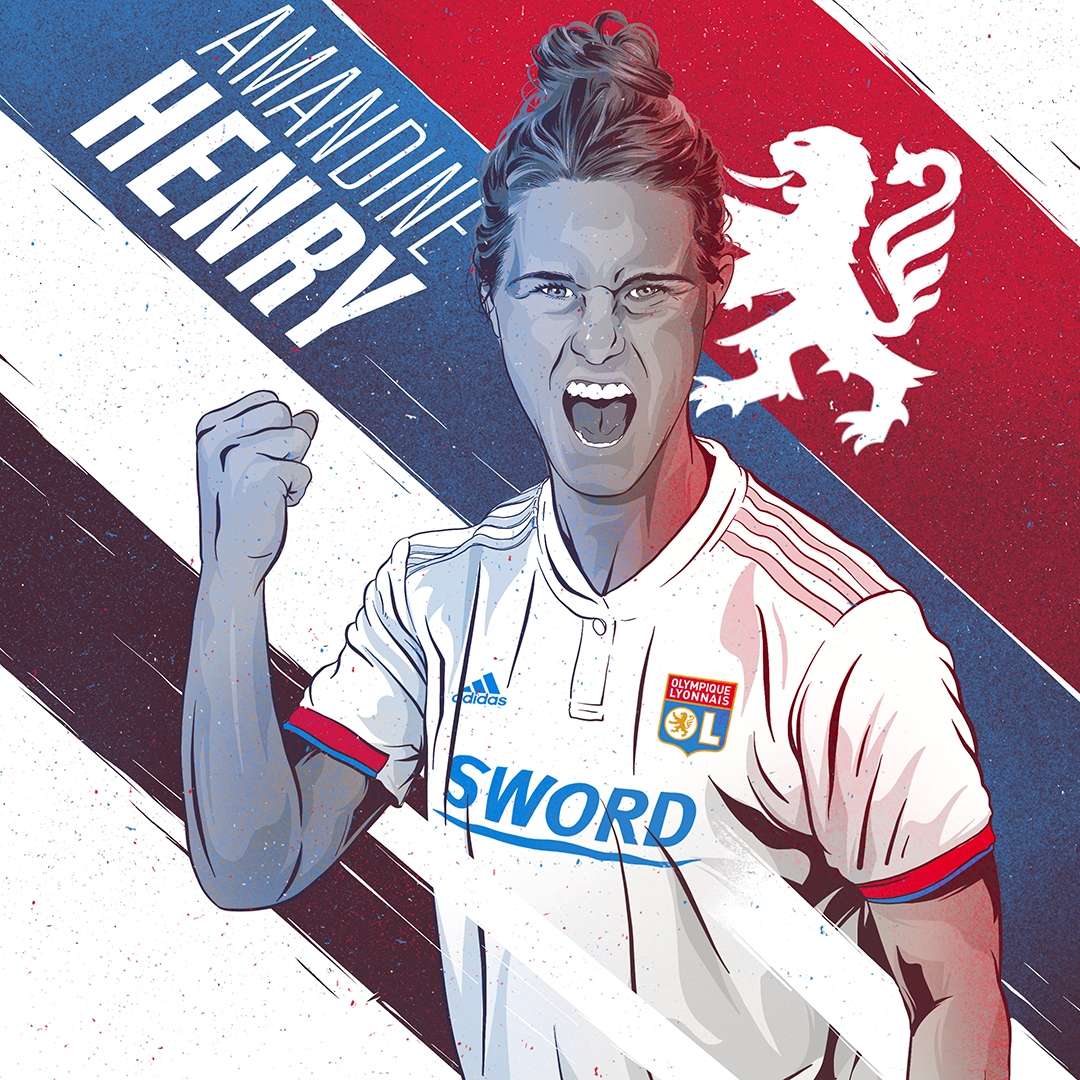 Callum Seymour/Goal
Callum Seymour/Goal
Over the course of the next few years, Lyon president Aulas continued his commitment to the team with a number of signings who would grow to be crucial players.
In 2013, Japan international Saki Kumagai, ranked at No.7 in Goal 50 this year, joined from Potsdam.
The following summer, Ada Hegerberg, who would go on to become the first-ever female Ballon d’Or winner and the Women’s Champions League’s all-time top-scorer, arrived.
In 2015, it was Griedge Mbock Bathy, the young centre-back who ranks 12th in Goal 50 this year and has formed a formidable partnership with Renard.
“Not everyone can come and take a spot in this team. That's been shown a lot of times,” Hegerberg, who was just 19 years old when she moved to France, tells Goal.
“You need to have the quality, but you also need to be mentally prepared and interested in investing long-term.
“I knew that Lyon had the best players, that they had the best ambitions - that matched my ambitions.”
England international Nikita Parris, who signed for the club in the summer of 2019, credits her ambition for helping her settle in France, too.
“I understood where I was in my career and where I wanted to go. For me to step in that environment, that’s what I wanted to get out of myself,” Parris tells Goal.
“Going into an environment where there’s nothing but winners and you know you have to quickly get up to speed, quickly get the understanding of the language, the culture, the way of playing, settling in off the pitch... that’s the hardest part.
“I just had to believe in myself and believe in my ability and know that it does take time.”
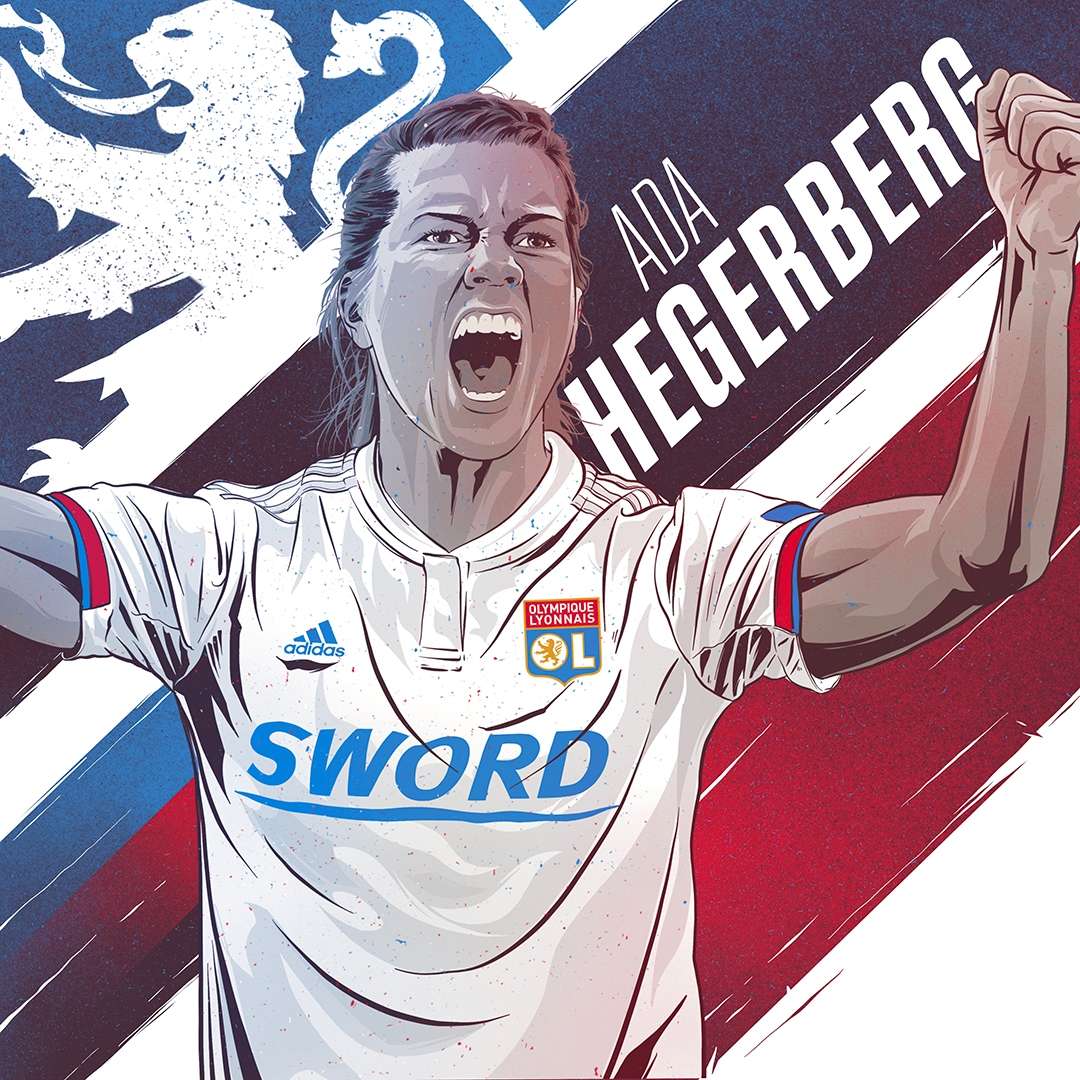 Callum Seymour/Goal
Callum Seymour/Goal
As well as recruiting well, Lyon were also keeping hold of their key players.
“The girls have been playing together for 10 years in Lyon and we can see the difference [that makes],” Henry explains.
Schelin agrees. “If you look at, Paris Saint-Germain for instance, you can see that they have changed a lot in their group,” she adds.
“If you look at them 10 years back, I don't think they have the same players at all. Lyon has the same players.”
That combination paid dividends as Lyon finally got their hands back on the trophy in 2016 – in dramatic style too, with a penalty shootout win over Wolfsburg.
“It was amazing to end my career in Lyon in that way,” Schelin, who left the club after that triumph, says.
“We were heading on a good path, winning all those trophies the last year. My last kick with Lyon was a penalty that was part of winning the Champions League. It was so amazing, like a dream.”
Asked if she was surprised by the success that would follow, she adds: “For me, it feels obvious because we were such a good team. Seeing them continue, [it's] normal.
“It's amazing, but I totally understand why.”
After the 2016 win, Dzsenifer Marozsán, one of the most technically gifted footballers in the world, was one of those who arrived to continue the winning ways.
“When I played for Frankfurt, I had the impression that Lyon kept the same players all the time,” the Germany international, ranked fourth in Goal 50 this year, tells Goal.
“Now, it’s changed. Big players come and go, but we still keep going as a team. That’s not easy, but we have a lot of the best players in Europe, and in the world, and they are really professional.”
The 2017 final was decided on penalties once again, with Lyon getting the better of rivals PSG on yet another big occasion. Lyon’s dominance domestically and on the continent means their French rivals have won just two trophies in the last 10 years, finishing as runners-up in the league an incredible eight times.
With new players adapting quickly to the ambitions and demands of the biggest club in the game, Lyon picked up two more titles in 2018 and 2019.
First, they beat Wolfsburg 4-1 after extra-time, something Hegerberg believes “showed extreme mental strength”.
Then, it was Barcelona who were beaten by the same scoreline the following year, albeit in 90 minutes. After Marozsán opened the scoring, Hegerberg hit a hat-trick to put Lyon 4-0 up after half an hour.
“I think it's very important to say that we don't defend our titles, but we attack again,” the striker says.
“Every year it’s going to be more difficult. We feel it on the field,” Marozsán laughs. “Everyone just wants to beat Lyon.
“That’s why I’m really impressed with the team, because mentally, that’s really strong from us. We just keep going and, each year, we have the same goals: we want to win the Champions League and all the other titles.”
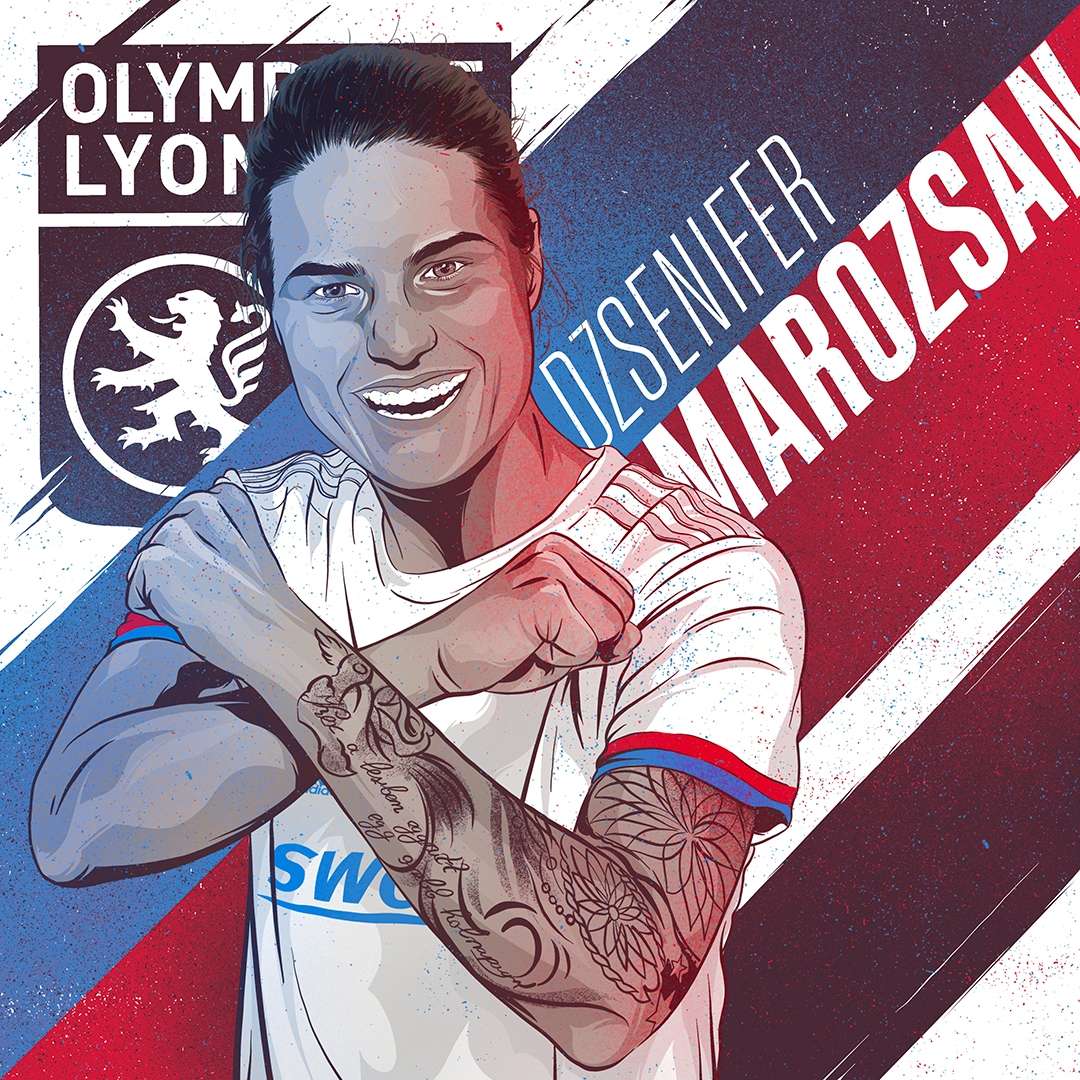 Callum Seymour/Goal
Callum Seymour/Goal
In 2020, dominance continued. Wolfsburg were defeated again in what was possibly Lyon’s most impressive win yet.
While their opponents boasted arguably the most in-form player in the world – Goal 50 2020 winner, Pernille Harder – Lyon were missing Henry, Hegerberg, Mbock Bathy and Parris. However, they were 2-0 up at half-time and, although Wolfsburg pulled one back, 3-1 winners in the end.
“I was so confident in the girls going into that game,” Parris says, recalling her first Champions League triumph.
It was an occasion she had to enjoy from the stands due to suspension but, while watching from the sidelines can give some players a perspective that makes them nervous, that was never the case for Parris on that day in Bilbao.
“I always knew, I always thought, ‘We’re going to score another goal’. It just came in the closing minutes of the game,” she says.
“When you finally get that medal around your neck… wow. What an amazing occasion.”
Five Champions League titles in a row is some achievement – but it’s nothing that Lyon will rest on. That focus on how to stay ahead is what keeps them at the top, after all.
“It takes a lot of analysing and the club also needs to be good at thinking ‘new’ every year. How can we always be a step ahead? That's going to be the challenge,” Hegerberg says.
“The club has a lot of work to do in the coming years because we can still stay on top, but it takes a lot of commitment from everyone.”
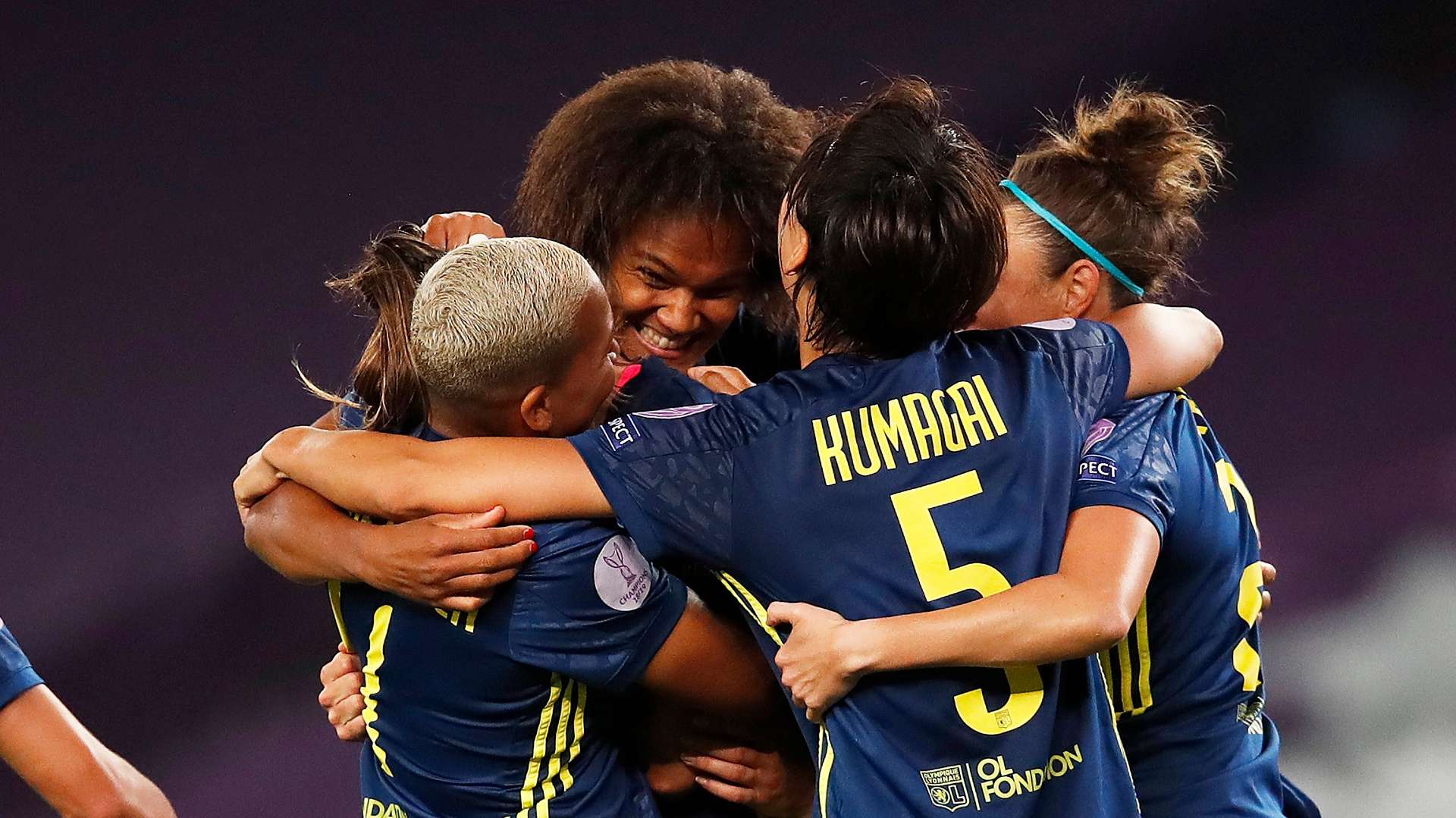 Getty
Getty
Rather than going out and signing the best players in the world, Lyon have made their dynasty by seeking out ambitious young talent and developing them in a winning culture.
Their success may seem flawless from the outside looking in, but there is more to it.
“It's good sometimes to just wake up and understand, 'okay, we have to work harder and do it again’,” Schelin says, reflecting on the difficult years that forged the team we see today.
“That's why Lyon, as a team, as a club, they are amazing. Winning, that's hard enough, but losing and then coming back? That's when you can see the real winners.
“That's why their history is perfect, in some way.”
Earlier this year, ahead of the resumption of the 2019-20 Champions League campaign, Lyon’s history-chasing team returned to the Col de l'Iseran, where it all began.
Only five players remained from the group that tackled the mountain back in 2010 – goalkeeper Sarah Bouhaddi, centre-back Renard, midfield general Henry, winger Amel Majri, who finished 18th in Goal 50 2019 and 2020, and goal-machine Le Sommer.
But, as that core group did 10 years ago, they conquered that gruelling peak and rose to the top of Europe once more.
With additional reporting from Benjamin Quarez.
